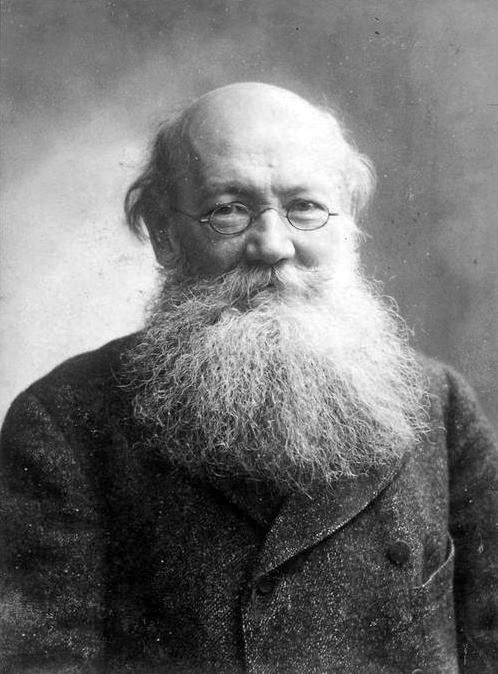
Your complimentary articles
You’ve read one of your four complimentary articles for this month.
You can read four articles free per month. To have complete access to the thousands of philosophy articles on this site, please
Philosophical Haiku
Pyotr Kropotkin (1842-1921)
by Terence Green
State of corruption
The offence of capital.
Harmony evolved.

Peter Kropotkin circa 1900 Public Domaiin
Kropotkin was one of those maladjusted types who were born into the Russian aristocracy, enjoyed a privileged upbringing with all the extras, and then came over all moral, renouncing their titles and going in for absurdities like peasant welfare. (His father was in charge of about 1,200 peasants, so he knew what he was talking about).
Influenced by Proudhon, Kropotkin first drifted into socialism and joined the Circle of Tchaikovsky. Rather than a musical appreciation society, this was a secret group committed to spreading revolutionary propaganda among the peasantry. Like Bakunin before him, he was imprisoned by the Russian authorities for his efforts. Also like Bakunin, he escaped. On the night he escaped – as any fugitive revolutionary would – he celebrated by having dinner at one of St Petersburg’s most fashionable and expensive restaurants. Later, Kropotkin became an anarchist.
Prior to becoming a revolutionary, Kropotkin had taken part in a geographical survey of Siberia. There he observed that animals (including the peasants) cooperated to stay alive, and on this basis he decided that Darwin had got the evolutionary process wrong. Darwin claimed that competition drove evolution. Kropotkin argued instead that cooperation allowed many species to flourish when they would otherwise have perished, including humans. It was not the fittest who survived, but the most cooperative! This is something of a misunderstanding of Darwin, though, because cooperation can be a useful strategy for competing. But let’s not quibble.
We are born to cooperate, Kropotkin said, but the twin evils of the modern state and capitalism corrupt and distort our innate goodness. If we can just live as we have evolved to live – in small, harmonious communities, without any central authority and marked by complete freedom and cooperation (that is, by political anarchism) – then all will be well. I can only assume I am yet to evolve to this stage. I prefer to keep to myself.
© Terence Green 2025
Terence Green is a writer, historian, and lecturer who lives in Eastbourne, New Zealand.









